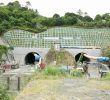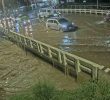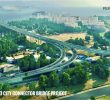Maasim, Sarangani Province, Philippines –This third class municipality in the province of Sarangani in Southern Mindanao is home to some 39,000 Christians, Muslims and B�laans. About 90% (46,600 hectares out of the total land area of 51,107 hectares) of Maasim�s land area is forestlands, but only about 2,000 hectares remain forested.
A large part of this once almost barren forestlands recently became productive again, with so many pineapple plantations established by marginalized farmers, who entered into an agreement with Dole Philippines. The local government unit (LGU) of Maasim, welcomed the development, but wanted to make sure that the influx of investment–although providing so many benefits to farmers — would not result in further degradation of the environment. The solution the LGU thought of was to apply soil and water conservation measures, agroforestry systems and organic farming in these areas.
As a first step to this �revolutionary� undertaking by the LGU, some farmers from Barangay Amsipit in Maasim, and staff of the Municipal Environment and Natural Resources Office (MENRO) and the Provincial Technical Working Group (PTWG) of Sarangani visited the Binahon Agroforestry Farm and Resource Center and the demo farms of the World Agroforestry Center in Lantapan, Bukidnon recently to learn how they can effectively and efficiently cultivate their land while contributing to the conservation and protection of the environment.
Maasim�s agricultural lands are generally sloping that�s why the farming methods, particularly agroforestry and natural vegetative strips (NVS), employed at the Binahon Agroforestry Farm and Resource Center and at the demo farms of the World Agroforestry Center are very applicable. In agroforestry�a system used in upland development in the Philippines for over two decades now, trees are incorporated in farms and agricultural landscapes. NVS, on the other hand, uses naturally growing grasses and herbs, intentionally left unplowed along the contour of hilly areas, forming narrow strips of greens to prevent soil erosion, slow down the lateral flow of water and increase water infiltration in the soil. These farming systems, if applied properly, can help farmers have better produce while improving the condition of our environment.
�This is how we want Maasim to be. The environment is protected�our vast forestlands are properly utilized and developed, and our people are not hungry,� says Maasim Municipal Environment and Natural Resources Officer Rolando Tuballes upon seeing the farm developed by the community in Lantapan which employs agroforestry and NVS.
The LGU of Maasim, together with the farmer participants, plans to initially develop some 15 hectares of agricultural land in Barangay Amsipit in Maasim, using the environment-friendly farming practices they have learned in Lantapan.
�I am very excited to apply in my farm the things I have learned here in Lantapan. These methods are new to us but we have seen that it�s working, with very favorable results. It takes a lot of time, patience and determination but it�s very doable. I am very grateful for this experience as this has opened a new opportunity for me, and for us farmers in Maasim,� says Sisong Kaka, one of the farmer participants from Maasim.
The USAID-funded Philippine Environmental Governance (EcoGov) Project assisted the LGU of Maasim in conducting this site visit, as part of its assistance to the LGU in putting in place soil and water conservation measures in ongoing upland development. The EcoGov Project is implemented in collaboration with the Department of Environment and Natural Resources (DENR). EcoGov, together with the DENR in Region 12, provided technical assistance to Maasim in the formulation of their Forest Land Use Plan (FLUP) and continues to assist the LGU in strengthening tenure management, and forging co-management agreement.
****** INBOX is an archive of press releases, statements, announcements, letters to the editors, and manifestos sent to Davao Today for publication. Please email your materials to davaotoday@gmail.com. Davao Today reserves the right to edit or refuse material for publication. *****










